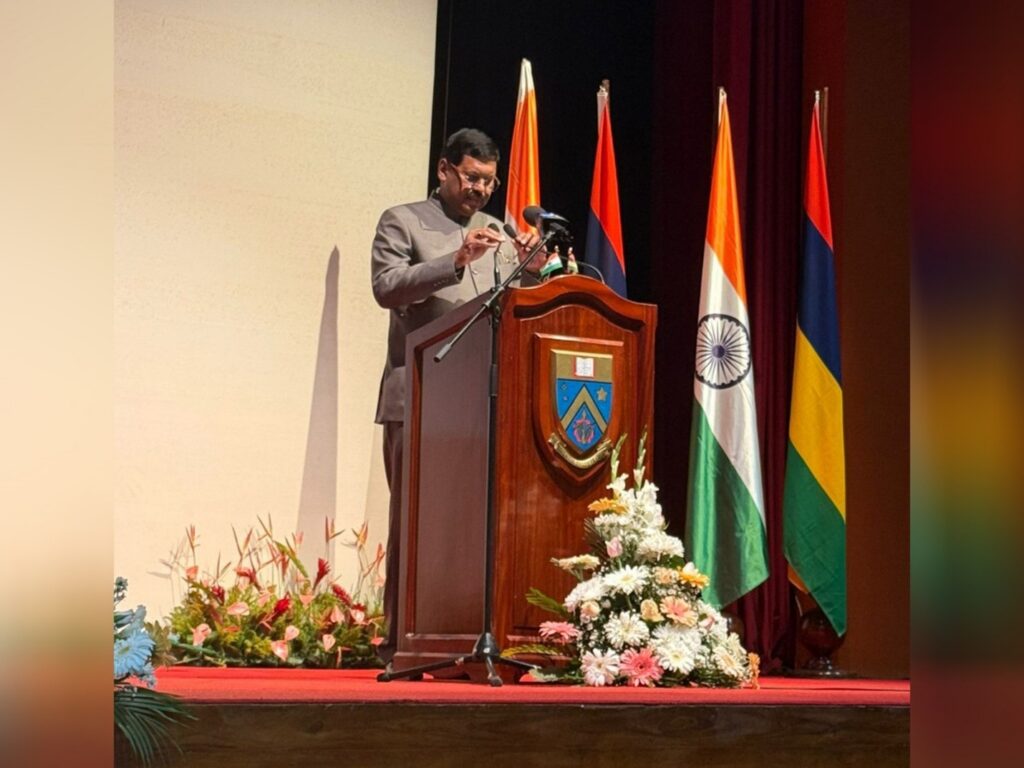CJI said the rule of law varies by society but always ensures fairness, limits power, and upholds dignity—India focuses on human rights, Mauritius on judicial independence and limiting discretion
Port Louis
Chief Justice of India (CJI) BR Gavai, speaking at the Sir Maurice Rault Memorial Lecture 2025 in Mauritius, emphasized that the Supreme Court’s ruling against the demolition of accused persons’ homes reaffirms that India’s legal system is governed by the rule of law—not by force or “bulldozers.” The Court held that such demolitions violate the fundamental right to shelter under Article 21, sending a clear message that executive actions must follow legal procedures.
CJI Gavai highlighted the judiciary’s constitutional role in upholding the rule of law, explaining that constitutional, criminal, and procedural laws are essential to regulating executive power fairly and justly. He stressed that the executive cannot act as judge, jury, and executioner simultaneously, and guidelines now ensure no demolition occurs without due legal process.
He noted that the rule of law is a dynamic concept, interpreted differently across societies. In India, it emphasizes non-arbitrariness and human dignity, while in Mauritius, it affirms judicial independence and limits discretion, ensuring law governs rather than individuals. Despite variations, these views share the belief that law must check power and guarantee fairness.
Justice Gavai also paid tribute to Sir Maurice Rault, praised Justice BR Mungly Gulbul—the first woman Chief Justice of Mauritius—and thanked local legal bodies for organizing the lecture. He linked the democratic traditions of India and Mauritius to Mahatma Gandhi’s legacy, observed on his 156th birth anniversary. Concluding, the CJI described the rule of law as an ongoing dialogue across generations and nations about governing with dignity and balancing liberty and authority in a democracy.

